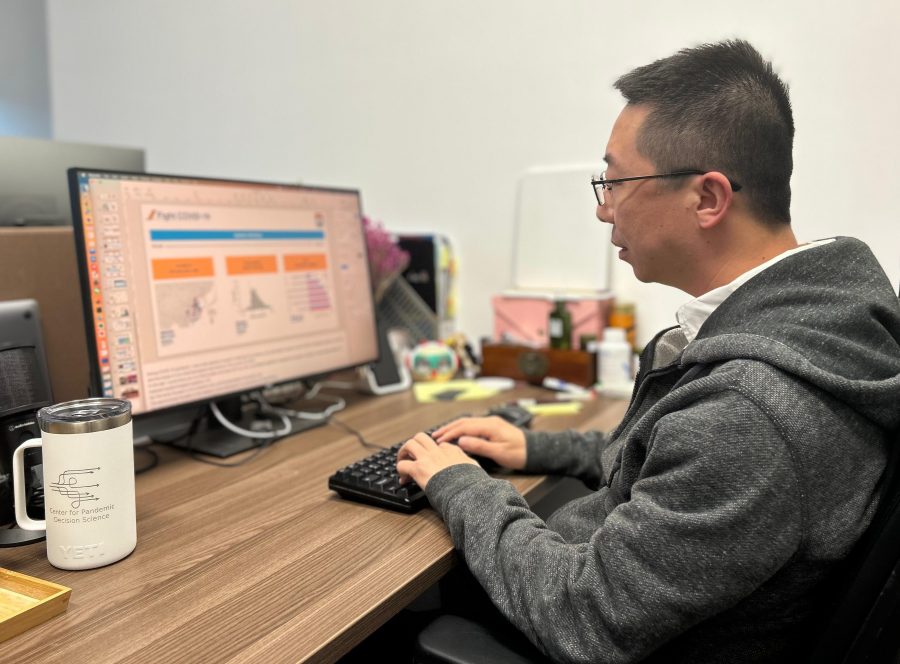An interview with Dr Zhanwei Du, Research Assistant Professor at the Laboratory of Data Discovery for Health and the School of Public Health of The University of Hong Kong
Predicting the spread of diseases is an interesting challenge because we can never conduct experiments on future events that may occur, said Dr Du in an interview about his journey during the COVID combat. He describes a disease model as a “crystal ball”; “the training of our model needs to accurately describe the past to make reliable predictions about the future,” he said.

Insights From the COVID Journey
Since the very initial stages of the pandemic, Dr Du has been actively involving in pandemic response efforts. He was an external member of the University of Texas at Austin COVID-19 Modeling Consortium, a centre which maintained multiple disease forecasting dashboards and was funded by the National Institute of Health (NIH) and the Centers for Disease Control and Prevention (CDC). The consortium’s expertise has garnered recognition and the implementation of public health interventions by the Texas government in the United States.
Even prior to the emergence of COVID 19, the Consortium had preparation in place.
“From 2018 to 2019, the CDC established five infectious disease modeling teams in the United States, requiring each team to develop a set of prevention and control systems based on the H1N1 influenza pandemic of 2009,” he said. “So well before the COVID-19 pandemic broke out, we had been working on those response measures for two years,” said Dr Du.
The models were useful in forecasting the trend of the then-pandemic, providing relevant recommendations for the mayor of Austin, Texas.
“The Mayor was very candid and admitted that before the COVID-19 pandemic, he mainly relied on his past experiences to make decisions. However, over the past three years, he realised the value of science of epidemic diseases and saw the importance of our committees. He believes that having a committee like this for the next outbreak would be beneficial in helping him make informed decisions.”
Looking Towards the Future
Now that the pandemic has subsided, it is widely predicted that another major outbreak comparable to COVID-19 will rise within the next five to ten years. Dr Du and his research team are fully immersed in developing cutting-edge response and control measures to effectively combat such outbreaks.
“Our focus lies in preparedness for the next outbreak,” stated Dr Du. “This entails devising strategies for vaccine administration, drug distribution, antigen testing, and various administrative measures.” Additionally, they are establishing a robust decision-making framework that delineates the organisation of working committees in each city during an outbreak. Each committee comprises professionals responsible for different areas of expertise, ensuring streamlined coordination and efficacious decision-making.

A Fulfilling Career
Throughout the interview, it was not hard to see Dr Du’s enthusiasm.
“Our work is meaningful as it gives me a sense of mission,” he remarked with a proud smile. “Our answers can have a real impact on people’s lives. For example, when the mayor directly asked us whether to implement a city lockdown, our evaluation became crucial in guiding these decisions.”
Dr Du’s research focuses on the application of machine learning in public health, particularly in modeling complex human behaviour, understanding disease transmission, and optimising the effectiveness and cost-effectiveness of public health interventions.
Read more: AI-ENABLED CASUAL INFERENCE FOR DISEASE CONTROL


